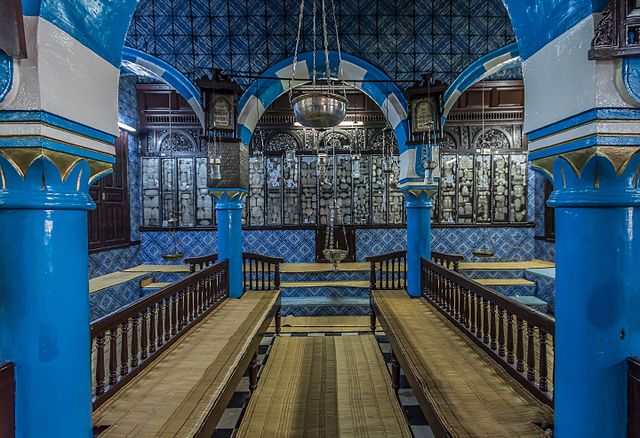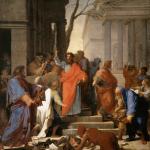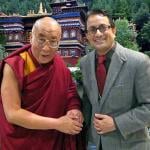
[These thoughts came about as a result of interacting with a messianic Jew (a Jew who accepts Jesus as Messiah) on the Coming Home Network forum.]
* * * * *
It’s good to know the Old Testament and the fathers, and it is also good to know, in addition, as much of the prior Jewish tradition as one can. That’s why Jewish Christians have been an immensely great blessing to the Church and Christianity in general (in the case of Protestants such as, e.g., Alfred Edersheim), because they bring with them that wealth of knowledge that can now be applied to a more developed Catholic understanding.
“Conversion” is not a dirty word, though. It simply means to change one’s mind from one viewpoint to another. Even though the new belief-system may be a development rather than an overturning or rejection, it is still a conversion in terms of change of mind. The word “convert” remains the quickest, easiest way to convey that one has arrived at a theological / spiritual destination from somewhere else.
Moreover, in terms of the Jewish-Christian divide, the overwhelming number of Jews think that Christianity is a corruption of Judaism, not a development, and so from their perspective, “convert” makes perfect sense. I think any Christian can call himself or herself a “completed Jew” but we must realize that this is a bit of an insult to adherents of Judaism proper.
People in general seem put off by folks who undergo a major change of mind. That is regarded as threatening; oftentimes because the observer somehow feels that their own position is made less secure, and that they may have to study the beliefs involved as well and perhaps change. And people don’t like change.
It may be argued that Jews recoil in horror at the word “convert” because it brings up painful historical memories of forced conversion and persecution.
I understand this. And so it would be wise to not use the word when with Jews. I’m not convinced, however, that this particular sordid history means we can’t use the word at all. I could just as well argue that all words (important ones, anyway) tend to become distorted in their meaning. Consider that the word “Christianity” itself has quite negative connotations in a non-Christian Jewish mind.
We would deny that their conception of what it is, represents its actuality and definition. So should we stop using the word? I think not. What we need to do is to be a better personal witness of what Christianity truly is and what it entails.
The same thing applies to the word “Jesus.” I think this is partially why many messianic Jews use Yeshua instead (and, for that matter, “messianic Jew” instead of “Christian”). It involves more than just being more Jewish. It’s probably also often a deliberate attempt to underemphasize the “Gentile” aspects of Christianity and the bad connotations of the past.
That may be pragmatically wise, but I would argue that it also suggests a sort of shame in one’s own belief-system that ought not be there, simply because terrible sins have happened in the past in the name of Jesus and Christianity.
I think Jews who are so (rightly) horrified about bad events in the past need to ponder and realize (contrary to continuing myths) that Pius XII and the Church were responsible (by reliable Jewish estimates) for the saving of about 800,000 Jews. Why not look at the positive?
Don’t get me wrong: the horror and dreadfulness and absolute diabolical evil of all these things (Leninist pogroms, the Holocaust) can never be emphasized enough. I don’t think a non-Jew can ever totally comprehend the traumatic effect that the Holocaust had in the Jewish psyche and self-understanding (if much at all).
I’ve studied the Holocaust for years (I was interested in the psychology of evil even before I was much of a committed Christian). I’ve been to the Holocaust Museum in the Detroit area. I fully understand and sympathize with that. But there is some “light” here, too! Recent ecumenical efforts by the last two popes are also quite encouraging.
It’s unfortunate that for many Jews, this [The Spanish Inquisition and Czarist pogroms were mentioned] is all they see. They don’t even consider Jesus Himself because of it. All Christians must hang their heads in shame that this has been the case. But we should be ashamed of what people have done, and distinguish that from the religion itself.
Protestants make the same sort of argument: some of the medieval popes were whoremongers; therefore Catholicism is false, or at least vastly inferior to Protestantism, because of sin. Crusades, Inquisitions, the sex scandal; therefore no one should be a Catholic, because it is a system of justified sin, through and through.
Not to get onto another topic, but this is the schismatic Donatist and Montanist (and later, Puritan) error again: separate yourselves and be “pure” and start anew, from scratch. The lie in that is the myth that the ones separating are any different. They, too, have original sin and commit actual sins. They can’t make themselves perfect simply by separating.
Any term can be abused. But non-Christian Jews are just as offended by “messianic Jews” using the term “messianic Judaism” because for them this is dishonest: it is co-opting the term they use for their religious belief, to another religion that many of them detest.
Many Jews believe that one can’t even be a “Jew” (in the larger sense of the word, as a “people” or whatever) and also be a Christian. They think that one ceases to be a Jew when one follows Jesus. The discussion ought to go much deeper than semantics and being offended by words, in my opinion, to questions like:
“Why do Christians have to be judged solely by the corrupt acts of some sinners who called themselves Christian, over 2000 years’ time, and not by all the positive things, or at least taking those into consideration?”
Or:
“Why does every Christian have to bear the brunt of the Holocaust as if it were largely our fault when in fact, the figureheads were all pagans who despised Christians as well, and murdered several millions of us (especially Poles) alongside you?”
Or:
“Why does Pope Pius XII have to be lied about, when in fact he was one of the greatest heroes of World War II and rescuer of Jews?”
Even the Holocaust should, it seems to me, be an area where Jews and Christians can have a common ground over against godless paganism and ruthless Nazism.
Jews honor righteous Gentiles such as Oskar Schindler, but yet continue to persist in myths about Pope Pius XII that are the exact opposite of the truth. Many individual Jews have defended Pius, but the general perception is otherwise.
And this is a shame, not just because it is an outright lie, but because what could be a tremendously positive, life-affirming, and bridge-building thing has been made the fodder for more unnecessary hurt, suspicion, and division.
It doesn’t have to be. The truth is there to be found. If Christians were too often (sadly) enemies of the Jews historically, they were not during World War II, and were the Jews’ greatest friend, surpassing any secular or political groups, or people like FDR, who did relatively little.
As someone who is passionately interested in ecumenism, and particularly Jewish-Christian relations, those are some of the things I would bring up.
But in any relationship both sides ought to be accorded the freedom to be who they are, and not forced to be ashamed of their own heritage because it is not spotless and perfect. That’s neither reasonable nor fair. Every individual also ought to be judged as an individual, and not stereotyped as part of a despised group. That is not an “un-Jewish” idea at all. Yet we Christians have been subjected to such an attitude very often by Jews.
I understand why this is, because of the sad history, but it is our task to overcome it by better understanding, relationship, witness, and love. I feel that we can do that in part by telling the truth about good, positive things, such as the actual facts about Pope Pius XII and massive Catholic (and Protestant) efforts at saving Jewish lives during that horrible period.
Both sides have a huge amount of work to do to repair the big rift; that’s for sure.
***
(originally 12-4-07)
Photo credit: El Ghriba Synagogue, also known as the Djerba Synagogue, is located on the Tunisian island of Djerba. Photograph by IssamBarhoumi (9-25-16) [Wikimedia Commons / Creative Commons Attribution-Share Alike 4.0 International license]
***













